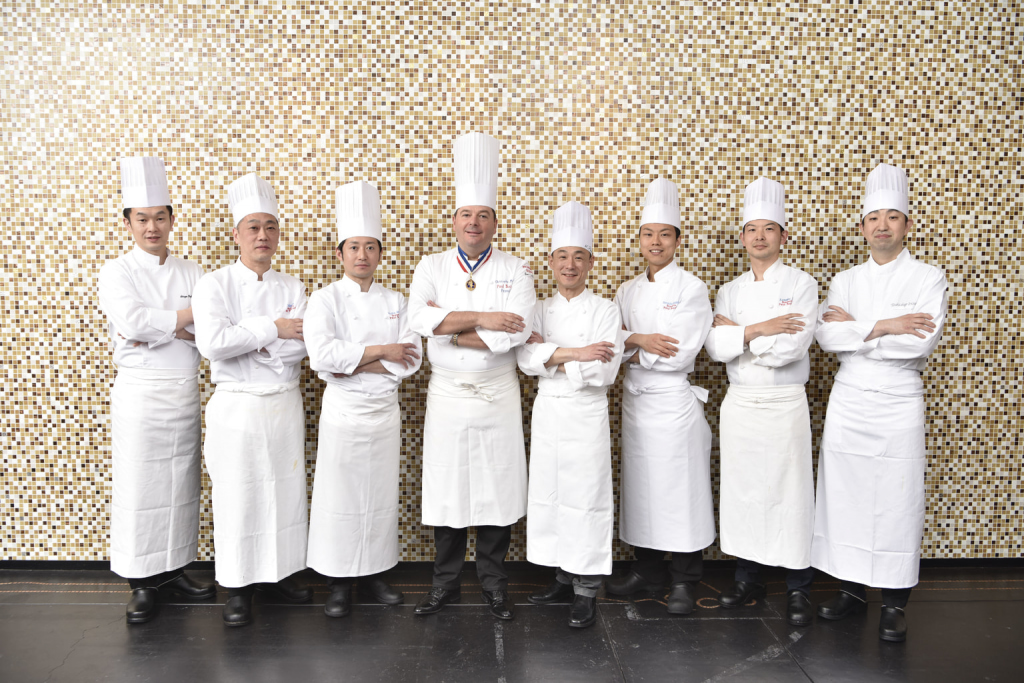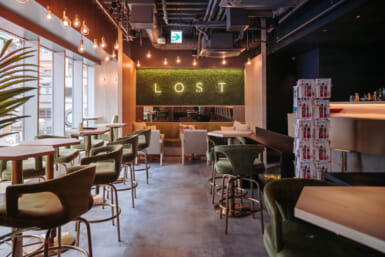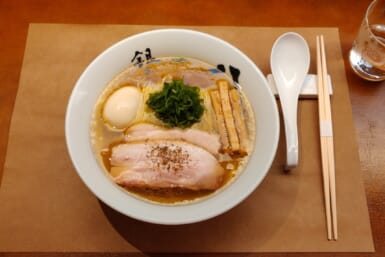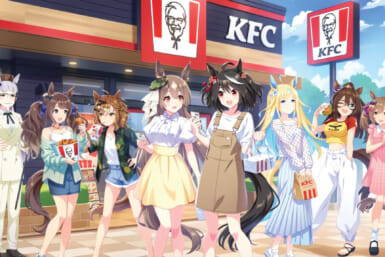Amongst the frills, rococo frames, room-wide mirrors and velvet furniture that adorn Daikanyama’s over-the-top, luxurious restaurants, legendary French restaurant Maison Paul Bocuse, located less than a minute from T-Site, is as always the exception to every rule.
At a table that could seat two dozen guests, we had the honor to sit down with Executive Chef Christophe Muller, who has taken charge of the legacy of the late Paul Bocuse, along with the established brasseries and restaurants between Lyon and Tokyo. Previously, Muller helmed Bocuse’s temple, L’Auberge du Pont de Collonges, which has received three Michelin stars without interruption since 1965.
Fans of French cuisine all around the world were devastated when the God of French gastronomy passed away in January last year at age 91. Those who followed his footsteps or the others inspired by his sparkling personality mourned more than just a Michelin-star chef.
Muller, the youngest chef to receive the prestigious MOF (Meilleur Ouvrier de France) award in 2000, was in town last month to catch up with Japanese chefs, making sure that everything remains faithful to the Bocuse philosophy and experience. Before long he was sharing personal stories about the man he had trained under for more than 20 years.
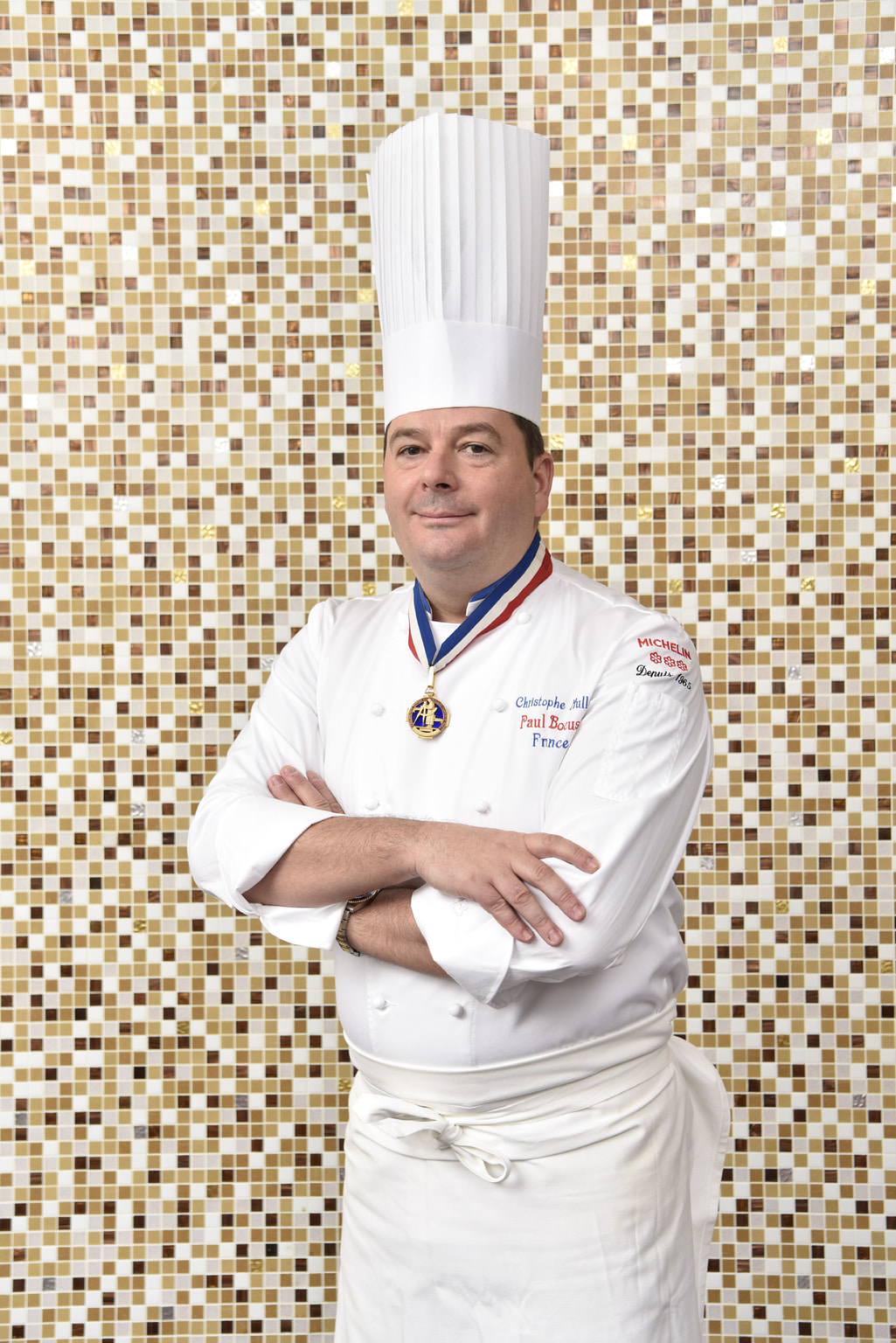
Executive Chef Christophe Muller
Unlike what you might expect from certain celebrity chefs, Muller described his mentor as an empath; somebody who cared about his customers more than his own status. “He was interested in people,” says Muller. “He would ask, ‘How are your kids? How’s the family?'” And these questions were treated with the utmost importance.
Bocuse was known to deflect credit for his restaurants’ success and entrust his recipes with his chefs. “Journalists,” explained Muller, “would come to the restaurants when he was there and ask ‘Monsieur Paul, is the food so good when you’re not here?’ To which he would answer ‘The one who cooks when I’m here is the same who cook when I’m not.'”
Over the years, those who worked under Bocuse didn’t view him as a boss but as a grandfather with eyes full of kindness, says Muller. In the culinary world, he was affectionately known as the Pope of French Gastronomy, but to Muller, Bocuse had clearly taken higher status. “There are no words to express why he is loved.”
Paul Bocuse restaurants and brasseries are located in Lyon, with a new one opened in Paris in early June, as well as in various cities in Japan under Hiramatsu Restaurants. The story behind this collaboration is as simple as Bocuse’s friendship with Japanese chef Hiroyuki Hiramatsu.
Hiramatsu was deeply inspired by French culture at a young age and participated in rigorous professional training to master the culinary arts in France. When Bocuse visited his restaurant in Paris, he met with the Japanese chef and their friendship grew quickly.
Hiramatsu was eventually given the responsibility of managing Bocuse’s Japanese locations, making Japan the second and only country besides France where you can find Bocuse’s signature dishes. Every chef working at a Bocuse restaurant today has trained in France, under Bocuse or in one of his restaurants. What matters is not their cultural baggage, but their passion for food and the service industry.
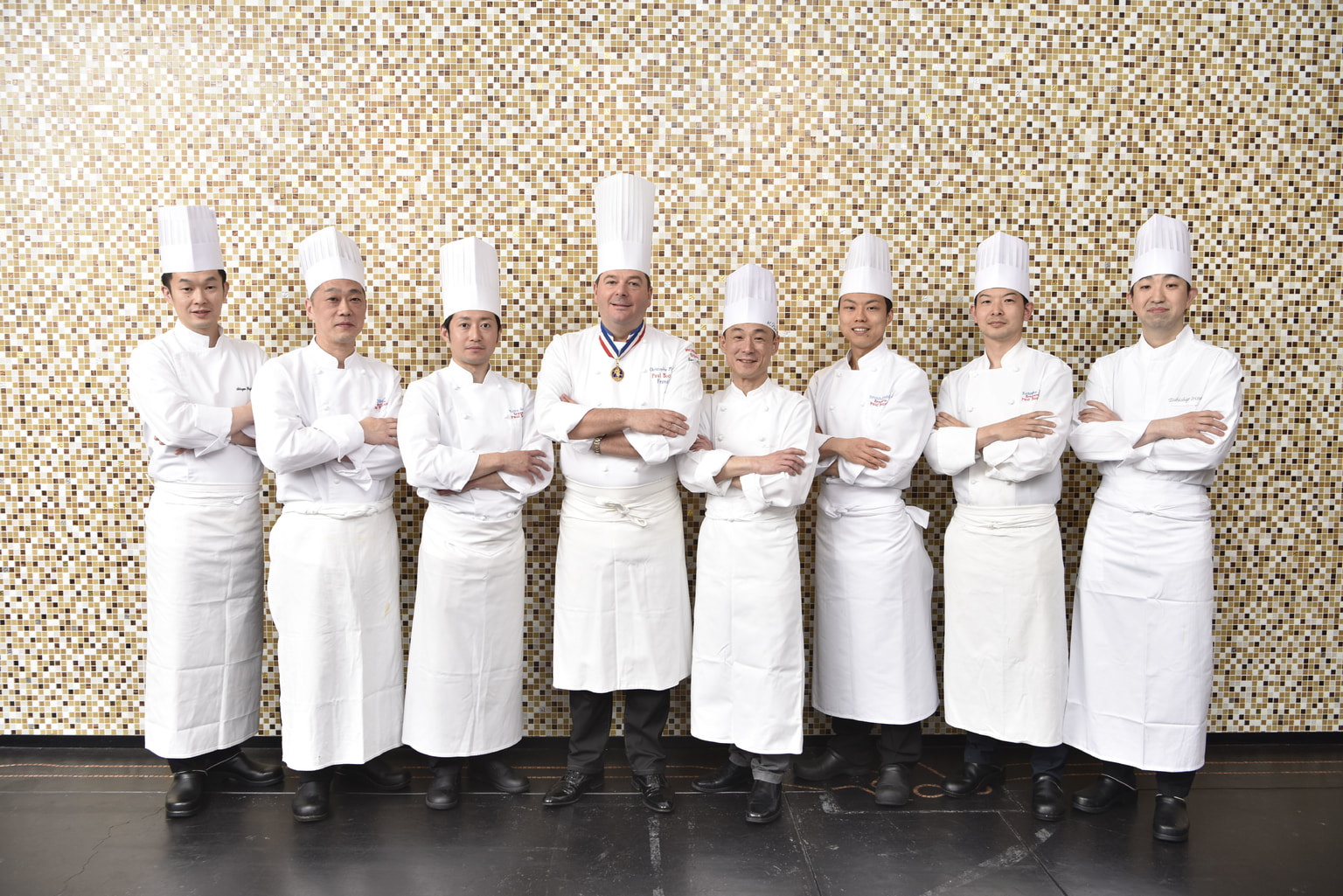

Muller is engaged in preserving and expanding Bocuse’s legacy and philosophy throughout the dozens of establishment the French giant left behind. “When I discuss with my collaborators,” says Muller, “we always end up asking the same question, ‘Is this Monsieur Paul‘s philosophy?'”
At the heart of that philosophy are simplicity and timelessness. Muller laughed before revealing Bocuse’s catchphrase, “You can write this down. Monsieur Paul always said, ‘My biggest change is to not have changed anything.'”
The Paul Bocuse menu reflects that sentiment. Customers flying from Australia, China or India, who’ve been coming to the restaurant for 20 years or remember an incredible dinner 15 years ago, will find the exact items on the menu. What they are looking for and what Maison Paul Bocuse and its variations provide is the ability to relive experiences as old as time. This is why, even across the globe, the menu and dishes prepared in all locations, even in the heart of Daikanyama, are the same, with ingredients and a taste that cross borders, cultures and generations.
Updated On March 4, 2021

